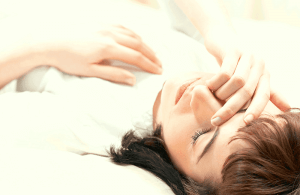Obstructive Sleep Apnea vs. Snoring
There is a lot of confusion regarding the difference between obstructive sleep apnea (OSA) and snoring. Some people who snore loudly assume they have OSA. Then, there are plenty of individuals with OSA who believe they are just loud snorers. Although the two are both sleep-related, they are very different.
Understanding Sleep Apnea
 The first thing you need to know is that there are three types of sleep apnea.
The first thing you need to know is that there are three types of sleep apnea.
- Obstructive Sleep Apnea: The airway is collapsed or obstructed. This is the variety most commonly confused with snoring.
- Central Sleep Apnea: A pause in breathing is stopped because the brain fails to send signals to the specific muscles that are responsible for breathing.
- Complex Sleep Apnea: This is a combination between the two.
A Closer Look at Obstructive Sleep Apnea
OSA is so commonly confused with snoring because the symptoms are quite similar. In fact, some people with OSA actually snore, which makes matters more confusing. It is suggested that sleep apnea may affect over 18 million Americas, but the vast majority goes undiagnosed.
OSA causes a complete or partial blockage in the airway, much like snoring. However, with snoring, there is air fighting to get through. It is the flow of air that causes soft tissues to vibrate against each other. With OSA, the flow of air is interrupted, which causes the brain to send signals to wake the body up. Breathing pauses can range from seconds to a minute, or longer. They can also occur as many as 30 times per hour. So, although you don’t remember waking up all these times, your sleep cycle suffers.
When your breathing is shallow, you stay in non-rapid eye movement sleep, so your body does not fully recharge. When you snore, your sleep cycle is affected the same way. Anti snoring devices are a good starting point to combat this issue.
Symptoms of Sleep Apnea
Snoring is a leading symptom of sleep apnea. However, additional sleep apnea symptoms are also experienced in individuals who just snore without OSA. A few include excessive daytime sleepiness, lack of energy, morning headaches, difficulty concentrating, sore throat, dry mouth, depression, irritability, and high blood pressure.
Regardless which sleep condition you have, these are not symptoms you want to ignore. Every night you deprive your body of its deep sleep cycle, you compromise your mental and physical health.
In a nutshell, the two sleep disorders have a relationship, but having one does not mean you have the other. Only a qualified medical doctor or sleep specialist can diagnose sleep apnea.

